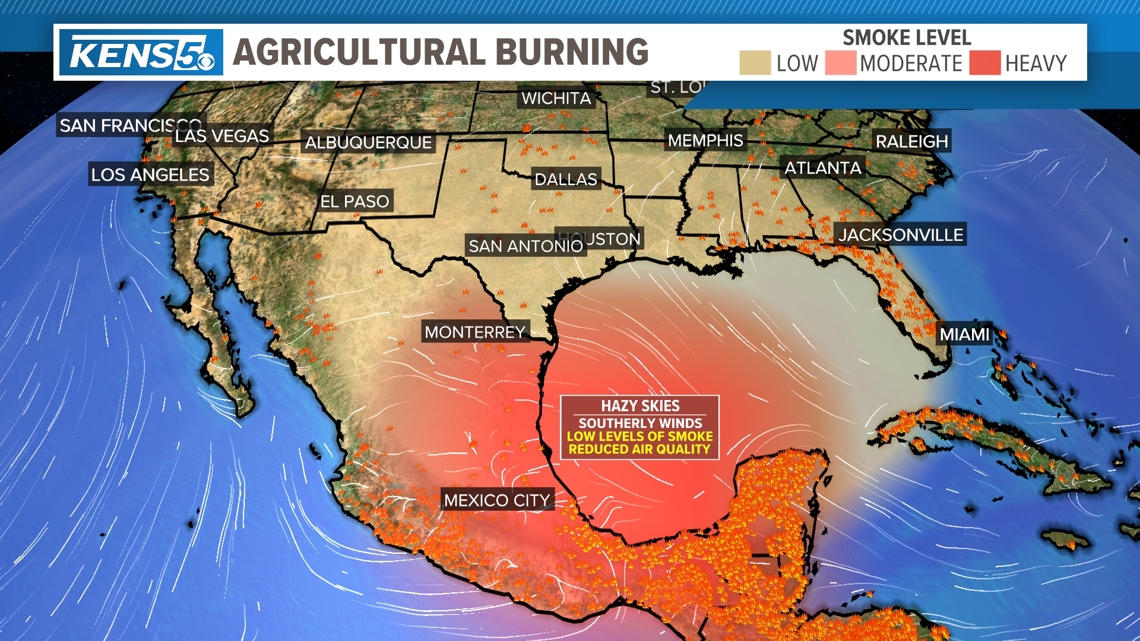From the editor: While the Texas Commission on Environmental Quality(TCEQ) found 12 Texas counties out of compliance with air quality standards, 8 counties(including Cameron) were given a pass based on outside influences beyond their control contributing to the high incidence of particulants in the environment.
The report focused primarily on particulate matter in the air which can result in respiratory issues and premature death.
 |
| Houston's petrochemical industry |
The four heavily-polluted counties included Dallas, Harris(Houston), Tarrant(Fort Worth) and Bowie(Texarkana).
With respect to Cameron, it was noted that the effects of the Smokehouse Creek Fire in the Texas panhandle, Mexico's agricultural burns and dust from the Sahara Desert, all situations out of our county's control, contributed to Cameron County's failure to meet the standards.
 |
| Smokehouse Creek wildfire in Texas panhandle |
The report also anticipates that many of these air quality requirements will likely be "rolled back" during the upcoming Trump administration.
We cite pertinent parts of the Texas Tribune/Border Report/Associated Press article below:
.png) |
| Locations for TECQ monitoring stations |
"Twelve Texas counties have recently exceeded federal air quality standards for particulate matter, commonly known as soot. But Texas environmental regulators are proposing that only four of them be required to take action to improve their air quality.
In its proposal to exclude eight counties from stricter federal pollution rules, the Texas Commission on Environmental Quality cited either bad air monitoring data or “exceptional events” — unusual or naturally-occurring events that can temporarily affect air quality such as wildfires, dust storms or emissions from outside the state.
The agency looked at air quality data from 2021-23 and proposed that four counties — Dallas, Harris (which includes Houston), Tarrant (Fort Worth), and Bowie (Texarkana) — be declared out of attainment with new federal air standards. But it’s recommending that eight other counties — Travis (which includes Austin), Montgomery (Conroe), Kleberg (Kingsville), Harrison (Marshall), Ellis (Waxahachie), Webb (Laredo), Hidalgo (McAllen) and Cameron (Harlingen and Brownsville) — be allowed to avoid the tougher standards.
.jpg) Last year, the U.S. Environmental Protection Agency slashed the level of particulate matter permitted in the air from 12 to 9 micrograms per cubic meter annually, marking the first update to the standard since 2012. It was one of the most ambitious parts of the Biden administration’s environmental agenda.
Last year, the U.S. Environmental Protection Agency slashed the level of particulate matter permitted in the air from 12 to 9 micrograms per cubic meter annually, marking the first update to the standard since 2012. It was one of the most ambitious parts of the Biden administration’s environmental agenda.
Particulate matter comes from diesel engines, wildfires, construction site dust, coal-fired power plants and other industrial sources. Some researchers have labeled particulate matter the deadliest form of air pollution.
The new standards came in response to growing evidence of the severe health impacts associated with particulate matter, which can penetrate deep into the lungs, aggravating respiratory issues and increasing the risk of premature death.
Harris County, home to much of the state’s massive petrochemical industry, has the highest particulate matter levels in the state at 12.5 per cubic meter on average over three years, followed by Cameron, Bowie and Dallas counties.
Cameron County, on the Texas-Mexico border, was removed from the nonattainment list because TCEQ determined its air quality levels were heavily influenced by international emissions, including wildfires and agricultural burns in Mexico and Central America. Similarly, Kleberg County, which includes Kingsville, was excluded due to particulate matter from Saharan dust and smoke.
Richard Richter, a TCEQ spokesperson, said the agency’s use of exceptional events is consistent with federal regulations and guidance."



.png)

No comments:
Post a Comment